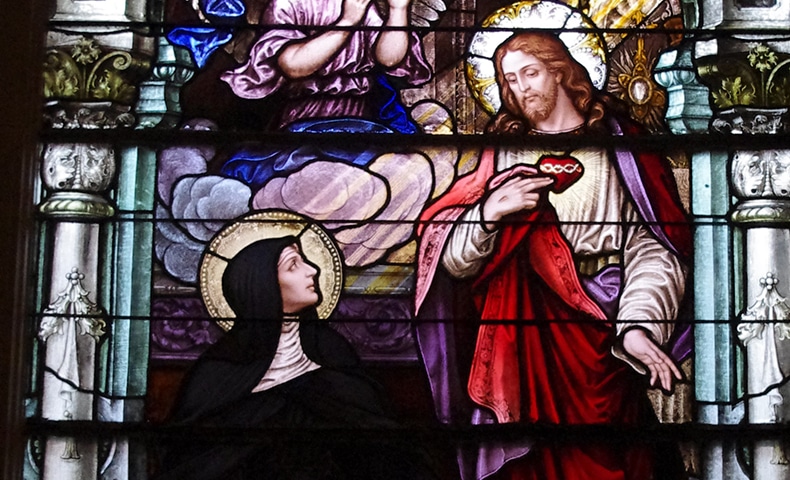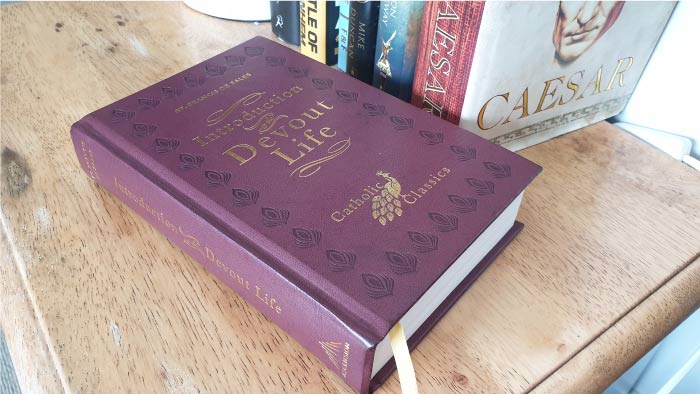Do you ever wonder if your decisions are truly yours? Are your actions born of your own freedom, or are they dictated by forces—biological, societal, or divine—that lie beyond your control? These questions cut to the heart of what it means to be human. For centuries, philosophers and theologians have debated the relationship between divine causality and human freedom. St. Thomas Aquinas offers an answer that challenges common assumptions, showing that divine causality doesn’t threaten our freedom but sustains and empowers it.
Rethinking Freedom: It’s About Choice, Not Just Will
Many people equate freedom with “free will,” as though our ability to act freely resides solely in the will. Aquinas, however, offers a different perspective. He argues that freedom is better understood as liberum arbitrium—freedom of choice. This freedom emerges from the harmony of two human faculties: intellect and will. Intellect allows us to deliberate and reason, while will inclines us to act. For Aquinas, these faculties are deeply intertwined in every human decision.
Unlike animals, which act on instinct or external stimuli, humans interpret and deliberate. Our decisions are not inevitable or automatic but are shaped by the way we reason about the world around us. While animals react to stimuli without deliberation, humans weigh options and act according to chosen ends.
A Simple Choice: Walking or Waiting
Imagine standing at a pedestrian crossing. The light is red, but the road seems empty. Do you wait for the green light, or do you cross anyway? Unlike a machine programmed to follow traffic signals, you deliberate. You might consider safety, laws, or the time you’re saving by crossing. This process of reasoning and weighing alternatives reflects your freedom of choice. You’re not bound by a single instinct or rule; your decision is yours.
Why Freedom Matters: The Foundation of Morality
For Aquinas, freedom isn’t just a philosophical abstraction—it’s the cornerstone of moral responsibility. Without the ability to choose freely, ethical systems lose their foundation. Why reward or punish someone who acts under compulsion? Why praise virtue if it’s merely the result of uncontrollable forces?
Consider a scenario: two people donate money to charity. One does so out of genuine compassion, while the other is coerced at gunpoint. The former action carries moral weight because it’s freely chosen; the latter does not. Aquinas argues that our capacity for moral judgment hinges on the assumption that humans can act freely, based on reasoned deliberation.
Reason and Deliberation in Everyday Decisions
Our freedom arises from our capacity to reason, especially when faced with complex situations. Suppose you’re deciding whether to take a job offer in another city. You weigh factors like salary, career prospects, and proximity to family. Unlike a predictable chain reaction in nature, this process of deliberation demonstrates the flexibility and openness of human decision-making.
For Aquinas, this flexibility is essential to freedom. While logical conclusions in theoretical reasoning (e.g., mathematical proofs) are necessary, practical reasoning remains open to alternatives. Human freedom lies in this capacity to weigh and interpret diverse factors in pursuit of a chosen end.
God’s Role: Not a Competitor, but the Source of Freedom
One of the most misunderstood aspects of Aquinas’s philosophy is his view of God’s role in human freedom. Many assume that divine causality competes with human autonomy. If God is the cause of everything, how can humans act freely? Aquinas’s response is radical yet deeply coherent: God is not another being among many, vying for control. Instead, God is Being itself—the source and sustainer of all existence, including our freedom.
God Empowers, Not Coerces
Aquinas emphasizes that God’s causality is not like a physical force compelling action. Instead, God’s creative presence sustains all things, enabling them to act according to their nature. For humans, this means our reasoning and willing are made possible by God’s sustaining act. Far from undermining freedom, God’s causality guarantees it.
Consider the act of writing a story. An author provides the framework and sustains the characters, yet within the story, those characters act according to their nature. The characters’ actions are real, yet they depend on the author’s creative act. Similarly, God sustains the world and human freedom without interfering coercively.
Freedom Through Dependence
Some might argue that if God causes our actions, we’re not truly free. Aquinas counters that freedom is compromised only when an external creature coerces us. God, however, is not an external force but the very foundation of our existence. Far from diminishing our autonomy, God’s causality ensures that we exist as free, self-determining beings.
Addressing the Problem of Evil: Does God Cause Sinful Acts?
A natural objection arises: if God causes all things, does He also cause evil? If a person commits a terrible act, is God responsible? Aquinas makes a crucial distinction here. God is the ultimate cause of being and sustains the faculties (intellect and will) that humans use to act. However, misuse of these faculties stems not from God but from human error or disordered desire.
Take the example of a child learning to paint. The parent provides the materials and guidance, enabling the child to create. If the child uses the paint to vandalize a wall, the fault lies with the child, not the parent. Similarly, God gives us the capacity to act, but how we use that capacity is up to us. Evil arises when we misuse the freedom God grants.
Freedom and Responsibility: A Gift to Embrace
Aquinas reminds us that freedom is both a profound gift and a solemn responsibility. With the capacity to choose comes the potential for great good or grave error. This is why, as Scripture says, “The wages of sin is death” (Romans 6:23). Sin, in Aquinas’s view, represents a failure to align our choices with the fullness of being—God, who is ipsum esse subsistens (Being itself).
God is the ultimate good, the source and sustainer of all life. To choose against this good, to act contrary to the nature of God and our own purpose, is to choose separation from life itself. Such a choice leads not to fulfillment but to diminishment—a movement away from the fullness of existence and toward death. Death here is not merely physical but existential, representing the loss of communion with the source of life.
What is striking is that this choice is often freely made. Aquinas argues that while ignorance or misunderstanding can mitigate culpability, sin ultimately involves a willful rejection of what is good.1 For instance, when we knowingly act out of selfishness or malice, we turn away from the life-giving harmony of God’s will. This choice fractures our relationship with the ultimate good and, by extension, with the life and purpose we are created to fulfill.
Thus, true freedom is not mere license to act however we wish but the ability to act in alignment with the ultimate good, leading to life and fulfillment. Conversely, choices that deviate from this good may feel free in the moment but lead to spiritual and moral death. Aquinas calls us to embrace freedom responsibly, recognizing it as the means by which we participate in the fullness of God’s life and love.
Freedom in Action: Learning a New Skill
Consider learning to play an instrument. At first, your movements are clumsy, guided by external instruction. Over time, you internalize the principles and play with creativity and personal style. Your freedom grows as you master the skill. In a similar way, human freedom is not about independence from all causes but about acting in accordance with our nature, enabled by God’s sustaining presence.
The Harmony of Divine Causality and Human Freedom
Are we truly free, or are we pawns in a cosmic design? Aquinas shows us that these ideas are not mutually exclusive. God’s causality does not compete with human freedom; it underpins it. Without God, there would be no existence, no deliberation, and no freedom. Far from being a puppet master, God empowers us to act as rational beings, interpreting the world and making choices that are genuinely our own.
This understanding invites us to embrace our freedom as both a profound gift and a weighty responsibility. Our choices shape not only our lives but also the world around us. In the light of Aquinas’s thought, we see freedom not as a struggle against divine power but as a participation in it, a reflection of the creative love that sustains all things.

Footnotes
- Ignorance and Culpability
In Summa Theologiae I-II, Q. 76, A. 2, Aquinas distinguishes between different types of ignorance:
Invincible Ignorance (which cannot be overcome) excuses sin entirely, as the person lacks the knowledge required to act otherwise.
Vincible Ignorance (which can and should be overcome) does not fully excuse sin because the person is responsible for failing to acquire the knowledge they ought to have.
Willful Rejection of the Good
In Summa Theologiae I-II, Q. 71, A. 6, Aquinas defines sin as a voluntary turning away from the ultimate good (God) and an inordinate turning toward some lesser good. He emphasizes that sin involves a choice of the will that deviates from what is in accordance with reason and divine law.
Responsibility and Willful Sin
In Summa Theologiae I-II, Q. 77, A. 8, Aquinas explains how ignorance can mitigate or remove culpability but that willful rejection of the good involves full knowledge and deliberate consent. This makes the act gravely culpable when the person knowingly and freely chooses against the good. ↩︎



